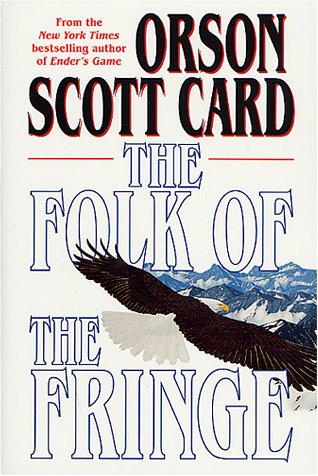This is a book I've long heard good things about and finally got around to since my Kindle died. "The Fringe" in particular was a finalist for the Nebula, Hugo, and Locus award. Two appeared in three different Year's Best anthologies, and "America" appeared in Ursula LeGuin, Brian Attebury, and Karen Joy Fowler's Norton Anthology of SF.
"West" opens with Jamie Teague, an Appalachian who's come down to the Carolinas to trade for goods to take back up to his people in the mountains. Six nuclear bombs have done enough damage to put America's civilization into chaos. He encounters a hapless group of doomed Mormons, singing and otherwise exposing themselves to an early death by the mobbers looting the strange and less fortunate. He slowly befriends them and guides them to the Appalachians where they are in less immediate danger, so long as they do nothing suspicious. Teague portrays himself as a murderer of his parents, but he's buried another secret. Meanwhile, the Mormons try to talk him into taking them further west to Utah, Mormon country, where he will be rewarded. Except Teague already has a home in the Appalachians. What might Utah offer him?
This piece, just shy of a third of the book, sets the basic scenario and a few intriguing characters, especially the loner Teague. Brother Deaver may be my second favorite as he is the most deeply wounded of the group (he'd be my favorite if he'd played a stronger role). Deaver is a black man who feels such guilt about not warning his family of imminent danger that he doesn't want to move on to Mormon country.
There's much maligning of Baptists who created an atmosphere of feeling that it was okay to kill Mormons. On the one hand, while I'm often suspicious of such broad-stroking of groups, Orson Scott Card is probably better informed on the history of Mormonism.
An interesting comment on women and civilization:
"[Teague had] never had an inkling of how...women help each other instead of trying to drive a bargain. 'It's called civilization," [Sister Monk or Tina] said to Teague, between visits. 'Women invented it, and every time you men blow it all to bits, we just invent it again.' "This works well as an introduction to the world and characters although it doesn't have the impact of later works in the series.


No comments:
Post a Comment